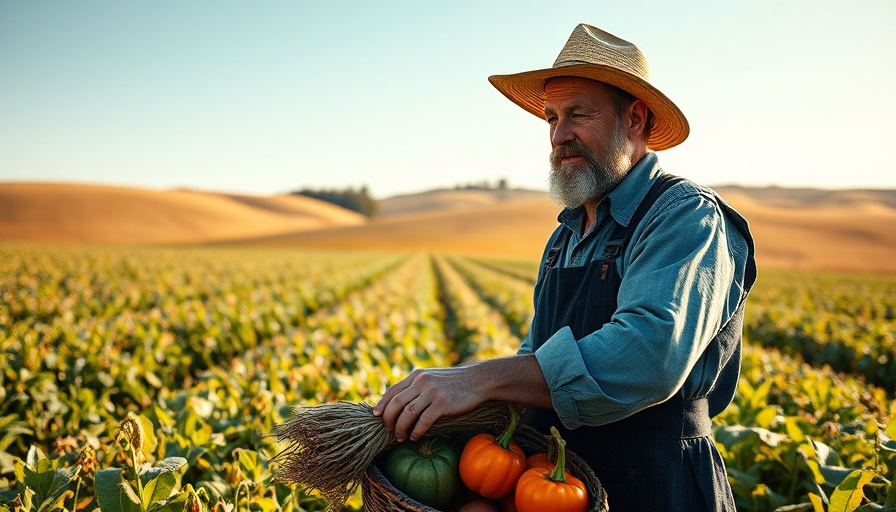
A Historic Ruling for Food Freedom
In a landmark case highlighting the ongoing debate over food sovereignty and consumer rights, Amos Miller, an Amish farmer from Bird-in-Hand, Pennsylvania, has secured a significant legal victory. A U.S. Appeals Court ruling has allowed him to resume selling raw milk and meat, overturning a hefty fine of $300,000 imposed by federal authorities. This decision is not just a win for Miller, but a broader statement about the autonomy of small-scale producers against a backdrop of regulatory challenges.
The Struggle Against Regulations
Amos Miller’s journey has been fraught with regulatory challenges that many small farmers face. For nearly three decades, his farm has been dedicated to producing high-quality raw dairy and meat products. However, the USDA classified his offerings as ‘adulterated’ due to his refusal to use chemical sterilization methods, prompting armed federal raids on his operations. The governing bodies' stringent regulations aimed at ensuring food safety often conflict with the traditional methods utilized by small, family-run farms. Miller's case illuminates the push-pull dynamic between government oversight and individual farming practices.
What This Means for Consumers
The reinstatement of Miller’s right to sell raw milk and meat directly underscores the growing demand for food freedom among consumers who prefer minimally processed, locally sourced products. Supporters of raw dairy argue that such foods are not only integral to cultural practices but also offer nutritional benefits often lost in pasteurized products. This ruling may pave the way for other farmers similarly impacted by regulatory scrutiny to reclaim their rights to operate independently.
Broader Implications for Food Sovereignty
This landmark ruling resonates with advocates for food sovereignty—an ongoing movement that prioritizes local farmers and sustainable practices over industrial agricultural norms. The voices advocating for food freedom are becoming louder. As modern consumers increasingly seek transparency in their food sources, this case may signal a turning point in how regulations adapt to serve the needs of small farmers and conscious consumers. The discussions it incites regarding health choices, economic freedom, and ethical food production are crucial as society navigates these complex relational networks.
Future Outlook for Small Farmers
The implications of this decision extend beyond just one farmer; it evokes sentiments of resilience within the farming community that prides itself on tradition and hand-produced goods. As legal frameworks evolve, they may embrace more flexible structures beneficial to small-scale producers. Advocates hope such shifts will encourage not only raw food sales but also a burgeoning support system for local farmers across the United States.
This case serves as a quintessential example of the ongoing struggles faced by many who strive for food freedom. The triumph of Amos Miller is a call to action for consumers and farmers alike to continue advocating for their rights in the marketplace.
 Add Row
Add Row  Add
Add 



 Add Row
Add Row  Add
Add 

Write A Comment